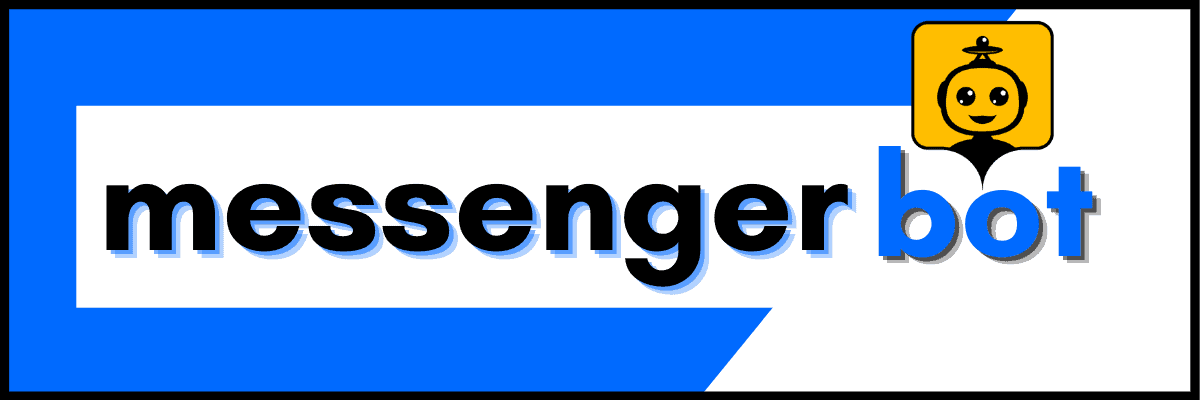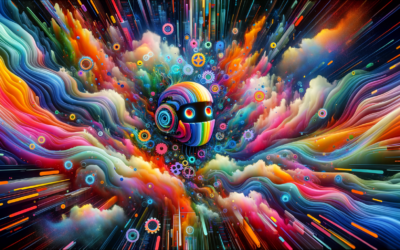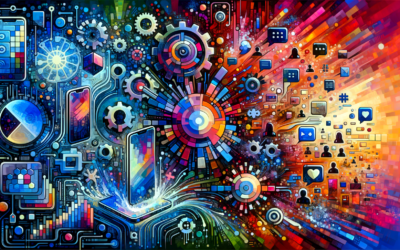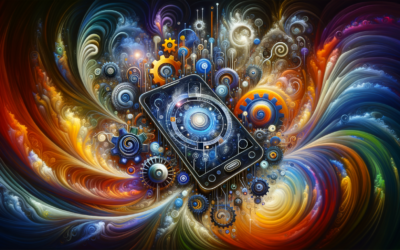In the rapidly evolving world of artificial intelligence, open source chatbots have emerged as powerful tools for businesses and developers alike. As the demand for intelligent conversational interfaces grows, the quest for the best open source chatbot has become increasingly competitive. This article delves into the realm of open-source AI chatbots, exploring their capabilities, benefits, and the top contenders vying for supremacy. From examining popular GitHub repositories to comparing free alternatives to proprietary solutions like ChatGPT, we’ll navigate the landscape of open source chat AI to help you make informed decisions for your projects. Whether you’re a seasoned developer or a curious enthusiast, join us as we uncover the most innovative and effective open-source chatbot frameworks shaping the future of conversational AI.
The Rise of Open Source Chatbots
In recent years, the landscape of artificial intelligence has been revolutionized by the emergence of open source chatbots. These innovative tools have transformed the way businesses interact with customers, offering advanced conversational capabilities that rival proprietary solutions. As a leader in AI-driven communication, I’ve witnessed firsthand the impact of open source chatbots on customer engagement and support.
What is the best open source AI chatbot?
Determining the best open source AI chatbot depends on specific needs and use cases. However, based on current trends and capabilities, several standout options have emerged in 2024:
- Rasa: Highly customizable and ideal for complex enterprise applications, Rasa supports multi-turn conversations and integrates seamlessly with external APIs.
- Botpress: With its user-friendly interface and visual flow builder, Botpress is excellent for businesses of all sizes, supporting multiple NLU libraries.
- Microsoft Bot Framework: Offering robust development tools and seamless integration with Azure services, the Microsoft Bot Framework supports multiple channels for versatile deployment.
- OpenDialog: Focusing on natural language understanding, OpenDialog offers an easy-to-use conversation designer and supports multiple languages.
While these options excel in various areas, it’s crucial to consider factors such as scalability, customization options, integration capabilities, and community support when choosing the best fit for your project. As an AI-driven platform, Messenger Bot complements these open source solutions by offering advanced automation and multilingual support, enhancing the overall chatbot ecosystem.
Open source chatbot: Definition and benefits
An open source chatbot is a conversational AI program whose source code is freely available for modification and distribution. This openness fosters innovation, collaboration, and rapid improvement within the developer community. The benefits of using open source chatbots include:
- Customization: Developers can tailor the chatbot to specific business needs and integrate unique features.
- Cost-effectiveness: Open source solutions often come with no licensing fees, reducing overall implementation costs.
- Transparency: The ability to inspect and modify code ensures security and builds trust among users.
- Community support: A vibrant ecosystem of developers contributes to ongoing improvements and problem-solving.
- Flexibility: Open source chatbots can be easily integrated with various platforms and services, including social media channels.
At Messenger Bot, we recognize the value of open source in driving innovation. While our platform offers proprietary features for enhanced automation and customer engagement, we draw inspiration from the open source community to continually improve our AI-driven solutions. The synergy between open source chatbots and specialized platforms like ours creates a robust ecosystem for businesses to leverage in their customer interaction strategies.
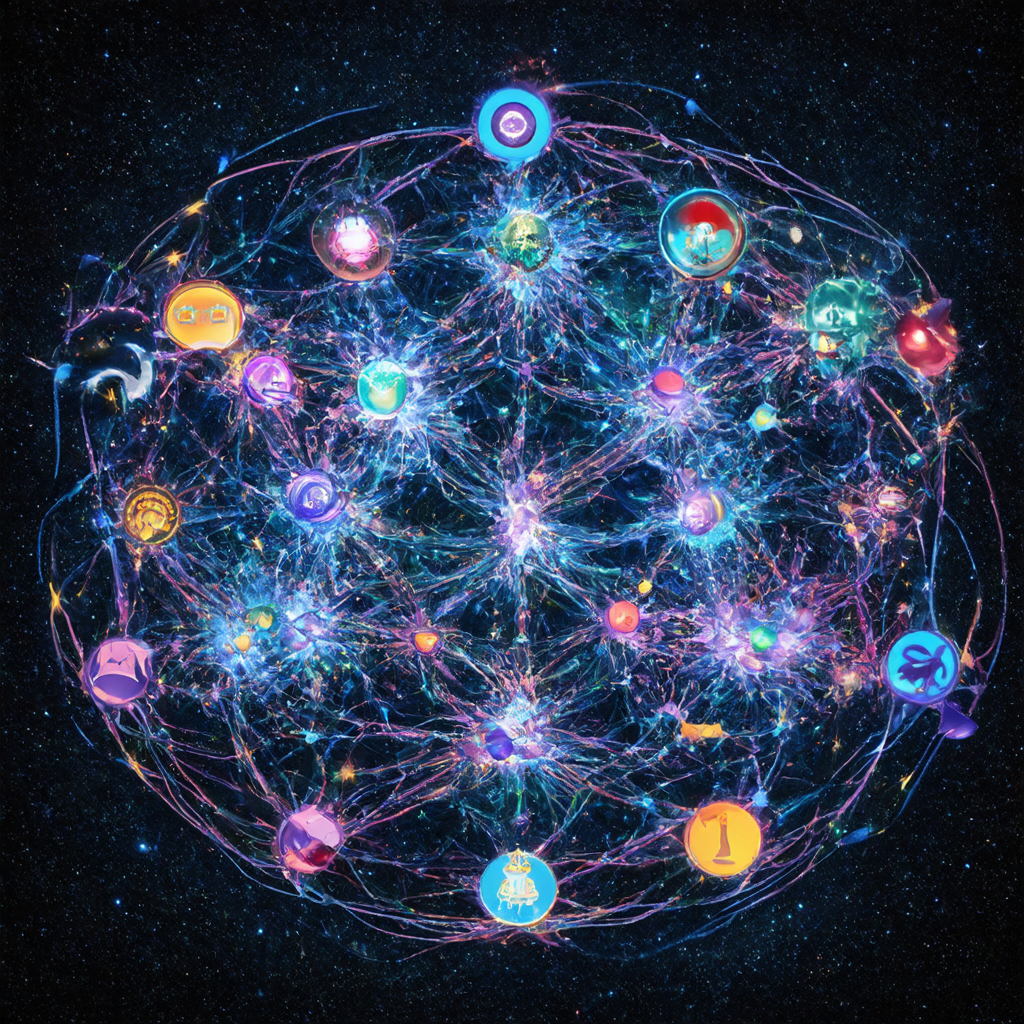
Top Contenders in the Open Source Chatbot Arena
As we delve deeper into the world of open source chatbots, it’s crucial to understand the landscape of available options. The arena is constantly evolving, with new models and frameworks emerging to meet the growing demand for sophisticated AI-driven conversational interfaces. At Messenger Bot, we closely monitor these developments to ensure our platform remains at the cutting edge of AI technology.
What is the best open source chat model?
The best open source chat models in 2024 continue to push the boundaries of natural language processing and generation. Here are some of the top contenders:
- GPT-J: Developed by EleutherAI, this 6 billion parameter model offers high-quality language generation and has seen significant improvements since its inception.
- BLOOM: Created by BigScience, this multilingual model now supports over 50 languages, making it an excellent choice for global applications.
- OPT (Open Pretrained Transformer): Meta AI’s contribution to the open source community has expanded its parameter range, offering even more flexibility for developers.
- LLaMA 2: The successor to the original LLaMA, this model is now fully open source and has shown remarkable performance in various language tasks.
- ChatGLM-6B: An updated version of the bilingual dialogue model by Tsinghua University, now with enhanced capabilities in both Chinese and English.
While these models excel in different areas, the choice of the best open source chat model depends on specific project requirements, including scalability, multilingual support, and integration capabilities. At Messenger Bot, we leverage the strengths of various models to provide a robust and versatile chatbot solution for our clients.
Botpress: A comprehensive open source chatbot platform
Botpress has established itself as a leading open source chatbot platform, offering a comprehensive suite of tools for building, deploying, and managing conversational AI. Key features that make Botpress stand out include:
- Visual Flow Editor: An intuitive interface for designing conversation flows without extensive coding knowledge.
- Natural Language Understanding (NLU): Advanced NLU capabilities that can be trained on custom data sets.
- Multi-channel Support: Seamless integration with popular messaging platforms and websites.
- Extensibility: A robust plugin system allowing developers to add custom functionalities.
- Analytics and Monitoring: Built-in tools for tracking chatbot performance and user interactions.
While Botpress offers a powerful open source solution, it’s important to note that platforms like Messenger Bot provide additional features such as advanced automation workflows and seamless integration with social media platforms. Our AI-driven approach complements open source solutions, offering businesses a comprehensive toolkit for customer engagement across multiple channels.
The open source chatbot landscape continues to evolve rapidly, with new models and platforms emerging regularly. As we revolutionize customer experience with AI-driven chatbots, it’s crucial to stay informed about the latest developments and choose solutions that best align with your business objectives and technical requirements.
Free and Accessible Chatbot Solutions
At Messenger Bot, we understand the importance of cost-effective solutions for businesses of all sizes. While we offer a comprehensive suite of AI-driven chatbot tools, we also recognize the value of exploring free options, especially for those just starting their journey into conversational AI. Let’s dive into some of the best free chatbot solutions available in 2024, keeping in mind that our platform offers advanced features that go beyond basic functionalities.
Which free chatbot is best?
Determining the best free chatbot depends on your specific needs, but here are some top contenders that offer impressive features without cost:
- ProProfs Chat: This platform stands out for its comprehensive customer support features, including pre-chat forms and intelligent routing. It’s particularly useful for businesses looking to gather detailed analytics on their chatbot performance.
- MobileMonkey: Excelling in multi-channel support, MobileMonkey integrates seamlessly with Facebook Messenger, SMS, and web chat. It’s an excellent choice for businesses with a strong social media presence.
- Tidio: With its AI-powered capabilities and real-time visitor monitoring, Tidio is a solid option for e-commerce platforms and businesses catering to an international audience, thanks to its multi-language support.
- ManyChat: Specializing in Facebook Messenger bots, ManyChat offers advanced marketing automation features, making it ideal for businesses focusing on social media marketing campaigns.
- Chatfuel: This no-code bot builder for Facebook Messenger and Instagram is perfect for startups and small businesses without extensive technical expertise.
While these free options offer valuable features, it’s important to note that Messenger Bot provides a more robust set of tools, including advanced AI capabilities, seamless integration across multiple platforms, and customizable workflows that can significantly enhance your customer engagement strategies.
Open source chatbot GitHub repositories
For developers and businesses looking for more customizable solutions, open source chatbot repositories on GitHub offer a wealth of opportunities. Here are some noteworthy projects:
- Rasa: A powerful framework for building contextual AI assistants and chatbots. Rasa allows for highly customizable conversation flows and integrates well with external APIs.
- Botpress: This modular bot-building platform offers a visual flow editor and advanced natural language understanding capabilities. It’s an excellent choice for businesses looking to create sophisticated chatbots with minimal coding.
- ChatterBot: A Python library that makes it easy to generate automated responses to user inputs. It’s designed to be language-independent and is great for creating conversational interfaces.
- Hugging Face Transformers: While not a chatbot framework per se, this repository provides state-of-the-art natural language processing models that can be used to build advanced conversational AI systems.
These open source solutions offer great flexibility and customization options. However, they often require significant development resources and expertise to implement effectively. At Messenger Bot, we’ve built upon these open source foundations to create a user-friendly platform that combines the power of cutting-edge AI with ease of use, allowing businesses to revolutionize their customer experience with AI-driven chatbot optimization.
While exploring these free and open source options, it’s crucial to consider factors such as scalability, integration capabilities, and long-term support. Our platform at Messenger Bot is designed to grow with your business, offering advanced features like multilingual support, detailed analytics, and seamless integration with popular CRM systems. We encourage you to try our free trial to experience how a professional-grade chatbot solution can transform your customer engagement strategies.
Comparing Open Source Chatbots to Proprietary Solutions
At Messenger Bot, we recognize the importance of understanding the full spectrum of chatbot solutions available in the market. While we pride ourselves on offering a cutting-edge proprietary platform, it’s crucial to acknowledge the strengths of open source alternatives. Let’s explore how these solutions stack up against each other and proprietary options like ours.
What chatbot is better than ChatGPT?
While ChatGPT has set a high bar in the AI chatbot world, several alternatives, including our own Messenger Bot, offer unique advantages:
- Anthropic’s Claude: Known for its human-like interactions and advanced reasoning capabilities, Claude excels in complex conversations.
- Google’s Bard: Leveraging Google’s vast knowledge base, Bard provides up-to-date information and excels in factual queries.
- Microsoft’s Bing AI: Powered by GPT-4, it combines advanced language understanding with real-time web search capabilities.
- Messenger Bot: Our platform stands out for its specialized features tailored for business applications, including multi-channel support, advanced workflow automation, and deep integration capabilities with popular CRM systems.
Each of these chatbots, including our Messenger Bot, offers unique strengths that may surpass ChatGPT in specific use cases. For instance, our solution excels in providing personalized customer experiences across various platforms, a crucial feature for businesses looking to enhance their customer engagement strategies.
Microsoft Bot Framework: A hybrid approach
The Microsoft Bot Framework represents a unique hybrid approach in the chatbot ecosystem, blending elements of open source flexibility with the robust support of a major tech company. Here’s how it stands out:
- Flexibility: While not fully open source, the framework provides extensive customization options, allowing developers to build bots for various platforms including websites, apps, and messaging channels.
- Integration: It seamlessly integrates with Microsoft’s Azure cloud services, offering scalability and advanced AI capabilities through Azure Cognitive Services.
- Community Support: Despite being a proprietary solution, it benefits from a large developer community, fostering innovation and problem-solving.
- Enterprise-Grade Security: Leveraging Microsoft’s security infrastructure, it provides robust protection for sensitive data, a crucial factor for businesses handling customer information.
While the Microsoft Bot Framework offers significant advantages, particularly for enterprises already invested in the Microsoft ecosystem, it’s important to consider the specific needs of your business. At Messenger Bot, we’ve designed our platform to offer similar levels of flexibility and integration capabilities, with the added benefit of a more streamlined setup process and specialized features for customer engagement.
Our solution combines the best of both worlds – the adaptability of open source solutions with the reliability and support of a dedicated platform. We encourage businesses to explore our free trial to experience firsthand how our chatbot can be tailored to meet your unique business needs while providing the ease of use and advanced features that set us apart in the market.
As the chatbot landscape continues to evolve, it’s clear that both open source and proprietary solutions have their place. The key is to choose a platform that aligns with your business goals, technical capabilities, and scalability needs. Whether you opt for an open source solution or a proprietary platform like ours, the focus should always be on enhancing customer experiences and driving business growth through intelligent, automated conversations.
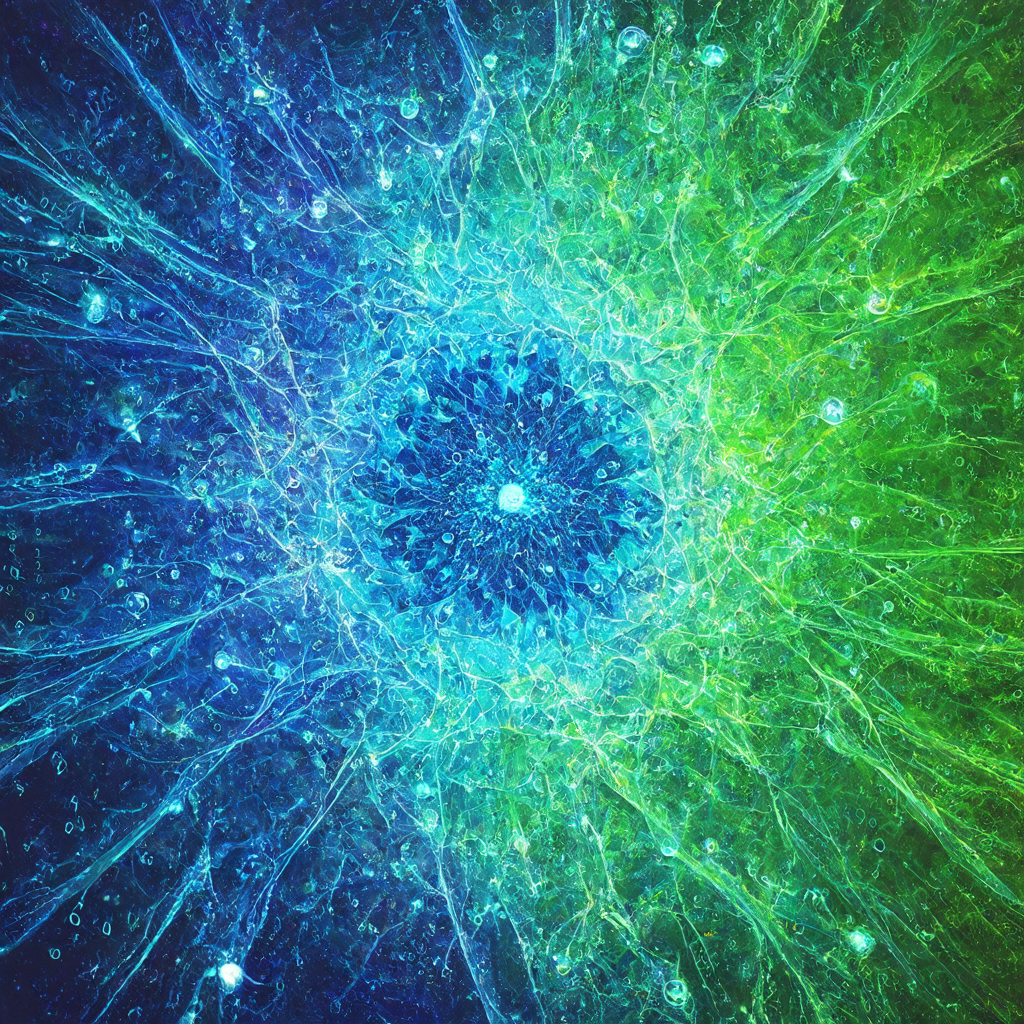
The Evolving Landscape of AI Chatbots
At Messenger Bot, we’re constantly monitoring the AI chatbot landscape to ensure we’re offering our customers the most cutting-edge solutions. The field of AI chatbots is rapidly evolving, with new developments emerging regularly. Let’s explore the current state of AI chatbots and how they’re shaping the future of digital communication.
Is ChatGPT still the best AI?
While ChatGPT remains a prominent player in the AI chatbot arena, determining the “best” AI is not straightforward. As of 2024, ChatGPT continues to be a leading solution, especially after OpenAI’s May 2024 update that significantly enhanced its free version. However, the AI landscape is diverse, with several strong contenders:
- Google’s PaLM 2: Excels in mathematical reasoning and complex problem-solving.
- Anthropic’s Claude: Stands out in longer-form content generation and analysis.
- DeepMind’s Gemini: Offers advanced multimodal capabilities.
- Our Messenger Bot: Specializes in business applications with advanced features for customer engagement and multi-channel support.
The “best” AI chatbot depends on specific use cases and requirements. For general conversational AI, ChatGPT is still a top choice. However, for specialized business applications, our Messenger Bot offers tailored solutions that often surpass general-purpose AIs in effectiveness and relevance for customer interactions.
Recent studies, including one in “Nature Machine Intelligence” (2024), highlight that AI performance varies significantly across different tasks. This variability underscores the importance of choosing an AI solution that aligns with your specific needs.
Open source AI chatbots: Current capabilities and limitations
Open source AI chatbots have made significant strides, offering impressive capabilities while also facing certain limitations:
Capabilities:
- Customization: Open source chatbots allow for extensive customization, enabling developers to tailor the AI to specific use cases.
- Community-driven innovation: Platforms like GitHub’s open source chatbot repositories foster rapid innovation and improvement through community contributions.
- Cost-effectiveness: For businesses with in-house technical expertise, open source solutions can be more cost-effective than proprietary options.
- Transparency: Open source models provide transparency in their operation, which is crucial for building trust and ensuring ethical AI use.
Limitations:
- Technical expertise required: Implementing and maintaining open source chatbots often requires significant technical know-how.
- Limited out-of-the-box functionality: Many open source solutions require extensive configuration to match the capabilities of proprietary platforms.
- Potential security concerns: Without proper vetting and maintenance, open source chatbots may pose security risks.
- Scalability challenges: Scaling open source solutions to handle large volumes of interactions can be challenging without substantial infrastructure investment.
At Messenger Bot, we recognize the value of both open source and proprietary solutions. While open source chatbots offer flexibility and customization, our platform combines the best of both worlds – the adaptability of open source with the reliability and support of a dedicated solution. We’ve designed our chatbot to be easily set up in less than 10 minutes, addressing the technical hurdles often associated with open source implementations.
As the AI chatbot landscape continues to evolve, we’re committed to staying at the forefront of innovation. Whether you’re considering an open source solution or looking for a robust, ready-to-use platform, we encourage you to explore our free trial and experience how our AI-powered chatbot can elevate your customer interactions and streamline your business processes.
Exploring Open Source Alternatives to ChatGPT
At Messenger Bot, we’re always on the lookout for innovative AI solutions that can enhance our chatbot capabilities. While our platform offers a robust, ready-to-use solution, we understand that some businesses might be interested in exploring open-source alternatives. Let’s dive into the world of open-source chatbots and see how they stack up against proprietary solutions like ChatGPT.
Is there an open-source ChatGPT?
While there isn’t an exact open-source equivalent of ChatGPT, several promising alternatives offer similar conversational AI capabilities:
- GPT-J: A 6 billion parameter language model trained by EleutherAI, available on GitHub. It’s a powerful option for developers looking to build custom chatbot solutions.
- BLOOM: Developed by BigScience, this 176 billion parameter model is accessible through Hugging Face, offering multilingual capabilities.
- LLaMA: Meta’s Large Language Model Meta AI, with variants ranging from 7B to 65B parameters, provides a strong foundation for building conversational AI.
- ChatRWKV: An open-source chatbot based on the RWKV language model, known for its efficiency and scalability.
- Alpaca: Stanford’s instruction-following model built on LLaMA, designed to follow specific instructions accurately.
These open-source projects allow developers to build custom conversational AI applications, fine-tune models, and contribute to their development. While they may not match ChatGPT’s out-of-the-box performance, they offer transparency, customization options, and community-driven improvements.
For businesses looking for self-hosted solutions, options like chat-with-gpt, oobabooga/text-generation-webui, and LocalAI provide greater control over data privacy and customization compared to closed-source alternatives.
At Messenger Bot, we leverage the best of both worlds. Our AI-powered features combine the flexibility of open-source technologies with the reliability and ease of use of a proprietary platform. This approach allows us to offer a solution that’s both powerful and user-friendly, without requiring extensive technical expertise to implement.
Best open source chatbot Reddit recommendations
Reddit is a treasure trove of information for developers and businesses seeking open-source chatbot solutions. Based on recent discussions and recommendations from the Reddit community, here are some highly regarded open-source chatbot options:
- Rasa: Frequently mentioned on Reddit, Rasa is an open-source machine learning framework for automated text and voice-based conversations. It’s known for its flexibility and robust natural language understanding capabilities.
- Botpress: Another popular choice among Redditors, Botpress offers a visual development environment and a modular architecture, making it accessible for both developers and non-technical users.
- Hugging Face’s transformers: While not a chatbot platform per se, this library is often recommended for those looking to build custom chatbots using state-of-the-art natural language processing models.
- OpenDialog: This open-source conversational AI platform is gaining traction for its focus on creating context-aware, multi-turn conversations.
Reddit users often highlight the importance of considering factors such as ease of use, community support, and integration capabilities when choosing an open-source chatbot solution. Many also emphasize the need for continuous learning and adaptation in the rapidly evolving field of AI chatbots.
While these open-source options offer great flexibility, it’s important to note that they often require significant technical expertise to implement and maintain effectively. At Messenger Bot, we understand that not every business has the resources to deploy and manage complex open-source solutions. That’s why we’ve designed our platform to be easy to set up and use, while still providing advanced AI capabilities.
Our solution combines the best aspects of open-source flexibility with the reliability and support of a dedicated platform. We encourage businesses to try our free trial to experience how a professionally managed AI chatbot can enhance customer interactions without the complexities of open-source implementation.
Whether you choose an open-source solution or a platform like ours, the key is to select a chatbot that aligns with your business needs and technical capabilities. As the AI landscape continues to evolve, we at Messenger Bot remain committed to providing cutting-edge chatbot solutions that help businesses stay ahead in the world of digital customer engagement.
Implementing Open Source Chatbots
At Messenger Bot, we understand the appeal of open source chatbots for businesses looking to customize their conversational AI solutions. While our platform offers a robust, ready-to-use chatbot with advanced AI capabilities, we recognize that some organizations may want to explore open source alternatives. Let’s dive into the world of open source chatbot implementation and best practices.
Open source chatbot frameworks and APIs
Several open source chatbot frameworks and APIs are available for developers looking to build custom solutions:
- Rasa: A popular machine learning framework for automated text and voice-based conversations. Rasa offers both natural language understanding (NLU) and dialogue management capabilities.
- Botpress: An open source conversational AI platform that provides a visual interface for bot building, along with advanced NLU capabilities.
- OpenDialog: A framework focused on creating context-aware, multi-turn conversations with a strong emphasis on dialogue flow.
- ChatterBot: A Python library that makes it easy to generate automated responses to user inputs, using a selection of machine learning algorithms.
These frameworks offer flexibility and customization options, but they often require significant technical expertise to implement effectively. At Messenger Bot, we’ve designed our AI-powered features to provide similar capabilities without the need for extensive coding knowledge, making advanced chatbot technology accessible to businesses of all sizes.
For those interested in leveraging pre-trained language models, options like Hugging Face’s transformers library provide access to state-of-the-art natural language processing models. These can be fine-tuned for specific use cases, offering a middle ground between fully custom solutions and out-of-the-box platforms.
Best practices for deploying open-source chat AI
When implementing open source chatbots, consider the following best practices to ensure success:
- Define clear objectives: Establish specific goals for your chatbot, whether it’s customer support, lead generation, or information dissemination. This will guide your development process and help measure success.
- Invest in data quality: High-quality training data is crucial for effective natural language understanding. Curate a diverse dataset that reflects real user interactions and regularly update it based on actual conversations.
- Focus on user experience: Design conversations that feel natural and intuitive. Implement features like button-based responses alongside free-text input to enhance usability.
- Implement robust error handling: Prepare for scenarios where the chatbot might not understand user input. Provide graceful fallback responses and options to escalate to human support when necessary.
- Prioritize security and privacy: Implement strong data protection measures, especially when handling sensitive user information. Ensure compliance with relevant regulations like GDPR or CCPA.
- Continuous monitoring and improvement: Regularly analyze chatbot performance, user feedback, and conversation logs to identify areas for improvement and update your models accordingly.
While these practices are essential for open source implementations, they’re also core principles we adhere to at Messenger Bot. Our platform is designed to handle these complexities behind the scenes, allowing businesses to focus on crafting engaging conversations rather than managing technical infrastructure.
For businesses considering open source chatbots, it’s important to weigh the benefits of customization against the resources required for development and maintenance. Our flexible pricing options offer a cost-effective alternative that combines the power of advanced AI with ease of use and ongoing support.
Whether you choose to implement an open source solution or opt for a managed platform like ours, the key is to create a chatbot that aligns with your business goals and enhances customer interactions. We invite you to try our free trial and experience how our AI-powered chatbot can elevate your customer engagement without the complexities of open source development.
